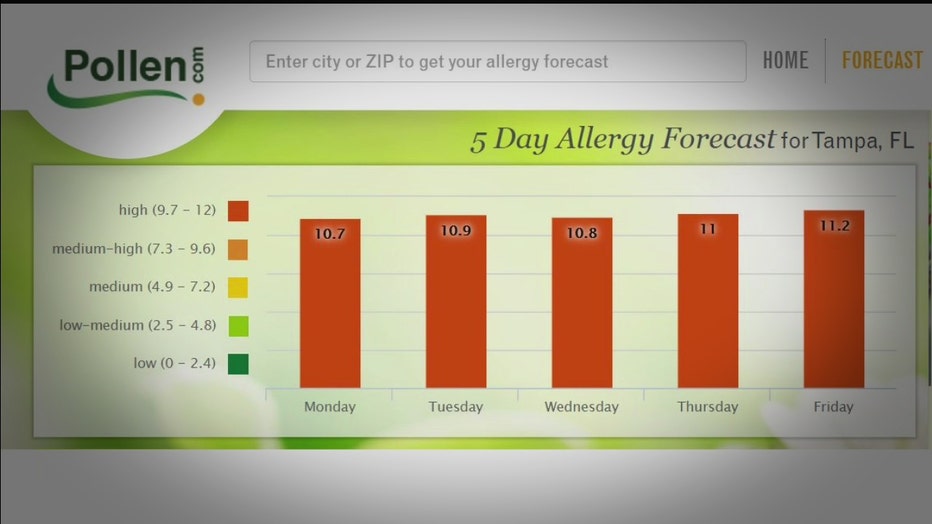Know the difference between allergies and COVID-19 symptoms
TAMPA, Fla. - Runny nose, itchy eyes, and sneezing -- the miserable signs of allergy season here in the Sunshine State. Local doctors say pollen levels are peaking in the next few weeks.
It always happens around this time of year as tree pollen blankets our area.
"We have one of the worst seasons of any place in the world because we have so many oak trees and we have as many cypress trees," said Dr. Richard F. Lockey, director of the USF Division of Allergy and Immunology.
Lockey says typically the region’s 11 different species of oak trees drop their leaves and start to bloom at different times, but the cold winter changed that timeline.
"So what’s happened is the season was delayed, and in the process, we have a lot more of the trees blooming at the same time, so the pollen counts are tremendous right now," he said.

The allergy forecast from pollen.com shows extremely high levels the rest of this week in Tampa, hovering right around 11 on a scale with a maximum of 12.
All of those particles and dust from the pollens are blowing around in the air making you congested and wheezy.
"Anybody that has any kind of spring allergies is gonna have symptoms, I don’t care who they are," warned Lockey.
Most people who suffer from seasonal allergies can recognize the familiar symptoms when they start. Yet for some folks, it may be hard to decipher if it’s the pollen or the coronavirus causing your discomfort. There are a few overlapping symptoms between the two, and some major differences.
"COVID-19 is gonna give you more symptoms than sneezy, itchy nose, itchy eyes," Lockey explained. "It’s gonna give you fever, chills, aches and pains, cough. With COVID-19 it’s gonna be limited, with an allergic problem it's gonna go on week after week after week."
With that in mind, Lockey recommends anyone who is concerned get tested for the virus. While allergy sufferers should stay indoors and stock up on over-the-counter relief, or prescription drugs and inhalers.
"People should not suffer from these problems at all, and if you need to see a physician, you should see a physician," he said.
Thankfully, the pollen should clear up in about four weeks.

More Tampa bars accused of mask violations
Tampa codes enforcement officers continue to catch bars allowing their patrons not to wear masks while inside.


